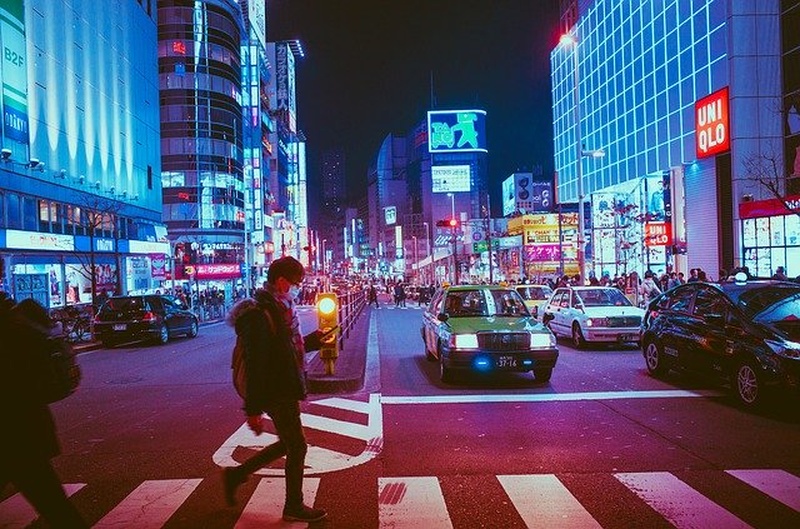Married couple who moved back to Japan after 48 years living in America
An increasing number of people around me are moving back to Japan. I’m also nearing that turning point myself. I feel at ease because my eldest son works in Japan and lives with my parents, but as their only child, I must return to Japan to take care of them when they require more elderly care. While there are Shin-Issei like me who return to Japan in order to take care of our parents who stayed in Japan, there are also those who move to Japan because it is difficult to live out old age in America where the medical expenses are high. So, as I consider moving back to Japan in the near future, I asked about why they returned to Japan after living in America for so long.
R, who returned to northern Kyushu from Los Angeles in February 2020, is currently in her 70s. She came to the United States in 1972, so her life in America actually spanned nearly 48 years. She married a Japanese person in the United States and thought they would live there together for a lifetime.
“I retired when I was 63. At the time, I didn’t feel America’s merits as a country and tolerance much. On the west coast, we also can’t get anywhere without driving. I felt that I needed to start preparing for old age, but I don’t have any children or grandchildren. If my spouse were to pass away first and then I passed away by myself in America, I wouldn’t be able to rely on my sisters and I couldn’t imagine my nephew and niece coming to take care of details after my death. I started thinking about returning to Japan in order to have a lifestyle that doesn’t burden others.”
When she was young, R realized that America was wonderful because “there are places to work regardless of age, gender, and nationality” and thought she would continue to live there for the rest of her life. She also volunteered at Keiro, a nursing home for retired Nikkei in Los Angeles, for 20 years. Perhaps she considered Keiro as a residence after living in a senior community for a while. In order to put “a lifestyle that doesn’t burden others” into practice, however, R returned to Japan to settle there permanently with her husband after consulting her younger sister in Kyushu. When selling off the senior community condo she had been living at in Torrance, California, the construction took longer than expected due to mold in the walls, but they were able to sell the property without further issues. Green cards become invalid if not renewed, so they were left as is. She lived in the United States for 48 years with her green card and was never able to gain citizenship. I forgot to ask her about this, but perhaps she was prepared to move back to Japan in the back of her mind.
When I asked her to give advice to people who will be moving back to Japan, she said, “First of all, you should return to settle permanently before you’re 80 years old. People who return to Japan in their 40s and 50s inevitably need to work, and many return to America again because they aren’t used to Japan’s work environment, which is very different from America’s. At the same time, I think it’s physically difficult (to return) once you’re over 80 years old. Next, decisively declutter before moving back. If you’re going to restart your life in Japan, it’s better not to have anything. And finally, live somewhere in Japan where you have relatives. I decided on a place close to where my younger sister and niece live. I was also able to ask them about things like the cost of living and prepare beforehand.”
On the other side of safe, clean, and convenient
Next, I spoke to M, who is one of my former clients. Over 15 years ago, I wrote an article to promote the Japanese company he worked at in Los Angeles. Exactly 15 years ago, however, M suddenly quit his job and moved back to Japan with his wife and young son. We reconnected on social media last year. He and his wife opened a yoga studio in northern Kyushu and now have 700 students. One could certainly say he has achieved huge success since returning to Japan.
M was 55 years old when he moved back. His health deteriorated a little before then and he felt uneasy about his health condition despite undergoing surgery in Japan. That was when he started learning yoga at the recommendation of his wife. They both acquired yoga instructor licenses and started working at sports clubs and community centers after returning to Japan. American-style yoga then became trendy, leading to an increase in teaching locations and students. “Now there are yoga instructors everywhere, but we just had good timing,” he said.
M was originally a surfer and has spent 18 years abroad in Hawaii, the mainland US, Mexico, and the United States again. “While I was away from Japan, globalization has progressed surely, and I imagined that Japanese people were also enjoying an open-minded life. However, once I started living here, I was shocked that globalization was nowhere to be seen. In reality, there are many people who are living in a very small world.”
I asked M to talk about Japan’s merits as well. “The public safety is amazingly good. The chance of getting involved in crime is really low. The streets are also neat and clean. It’s easy to live here. You can easily get anything you want and eat at places with good cheap food, but there are also many first-class places if you spend the money. There’s everything from the best to the worst.”
I also sought M’s advice for people thinking about returning to Japan. “I recommend getting specialized licenses that Japanese people need. It’s very likely that people who are used to work in the United States won’t be able to stand the rigidness of a typical job in Japan. You should also live close to your relatives while they’re still alive. Someone I know moved back with his spouse after living in Hawaii for 40 years, but they regret not moving sooner. All their relatives passed away and they don’t have anyone to be a guarantor. You can’t rent a house when you’re old, and a guarantor is necessary.”
As previously mentioned, R said that people should return to Japan before turning 80, but that they will have trouble with work if they move too soon. On this issue, M emphasized that, as he proved, it’s better to move back earlier if you have the confidence to take your career into your own hands and move independently. He also had some other ideas. “Even if you don’t have relatives in Japan, you can move back to regions promoting migration in order to impede depopulation, and there are programs that offer support for housing and even job hunting. By making use of those programs, especially if you have kids, you can have an ideal life in the countryside and raise your children surrounded by nature.”
As preparation for my own return, R and M’s experiences are both great references. I would like to express my gratitude to both of them who were willing to be interviewed. On the other side of the phone, M told me “Keiko-san, you should come back too” multiple times. Those words still echo deep in my mind.
© 2020 Keiko Fukuda








